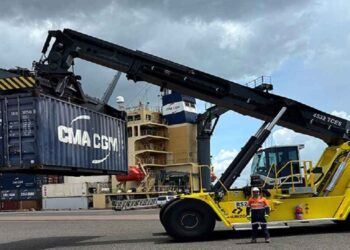Rail Baltica project promoter RB Rail has unveiled details of the proposed operational plan for the future 1 435 mm gauge line running 870 km from the Polish border to Lithuania, Latvia and Estonia.
The operational plan for 2026–56 has been developed by ETC Gauff Mobility, COWI and Institut für Bahntechnik, based on predicted market demand and development.
Passenger servic
It is proposed that there would be four fast passenger trains per day from Tallinn to Warszawa and four from Tallinn to Vilnius when the line opens in 2026, increasing to six per day within 10 years. In addition, there would be six trains per day between Vilnius, Kaunas and Warszawa, increasing to 10 later. These services would together provide a link between the Baltic capitals every two hours.
There would also be Tallinn – Riga – Kaunas – Warszawa – Berlin and Vilnius – Kaunas – Warszawa – Berlin overnight trains.
A shuttle service running every 30 min would connect Riga’s main station and international airport in 11 min.
The plan also identifies the potential for the operation of 200 km/h regional services, subject to additional studies and government decisions. It suggests there could be sufficient passenger demand for domestic services from Tallinn to Pärnu, from Riga to Bauska and Salacgrīva and from Marijampole via Kaunas to Vilnius. There could also be demand for cross-border services, including Marijampole – Riga and Tallinn – Riga airport.
Freight services
The plan envisages two to three freight trains per hour. These would be 1 050 m long, with a 25 tonne axleload and a maximum speed of 120 km/h. Multimodal terminals are to be developed at Muuga in Estonia, Salaspils in Latvia and Palemonas in Lithuania, and RB Rail expects that 80% of freight trains would carry intermodal containers and lorries.
Medium and long term
‘The main outcome of the operational plan is to indicate how the Rail Baltica infrastructure will meet the transport demand in the medium and long term, guaranteeing capacity for all types of train services’, said Jean-Marc Bedmar, Head of Systems & Operation at RB Rail.
‘This plan will be used to ensure that Rail Baltica track is used efficiently from the first day of its operations and allow the scale-up up passenger and freight services after the phase-in period.’


































